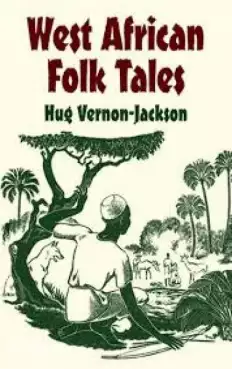
Timeline
Title
Country/Nationality
William H. Barker
BARKER, WILLIAM HENRY, businessman; b. 24 June 1853 in Manchester, England, one of the ten children of Ambrose Barker and Sarah Westerdale; m. Orpha Beard in Astoria, Oreg., and they had three sons and two daughters; d. 9 Jan. 1929 in Vancouver.
Following schooling in England, William Barker found employment in his father’s Liverpool shipping business and later in the merchant navy. In 1872 he emigrated to the United States. He settled in Oregon just as the Columbia River fishery was gaining momentum and he quickly established a position within the pioneer canning business. He worked for several of the early canners in the state, including Robert Deniston Hume, whose interests he managed from 1878 to 1881 at the Kinney cannery in Astoria. In 1885, after a decade in managerial positions with different firms, he formed the George and Barker Packing Company on the Columbia River with George H. George; he was the junior partner. In 1895 this enterprise consolidated several rival canneries to form the Eureka and Epicure Packing Company. A further consolidation of nine separate businesses on the Columbia River occurred in 1897, creating the Columbia River Packers’ Association with headquarters in Astoria. In all of these enterprises, Barker assumed significant administrative and managerial authority. The newly established CRPA, for example, retained him as its superintendent. In 1901, however, he resigned from the position to devote his attention to the George and Barker Company, which had been founded the previous year. He acted as the firm’s president and manager, overseeing a program of expansion that included the establishment of a cannery at Point Roberts, Wash.
Barker was attracted to Vancouver in 1904 to carry forward the successful integration of canneries under the British Columbia Packers’ Association. Two years earlier the BCPA, backed by eastern Canadian and American capital, had merged 22 firms and assumed control of over half the Fraser River’s salmon pack; it operated with a capitalization of $4,000,000 and was the largest fish-packing business in the province. Barker was viewed favourably as a practical man, well acquainted with the business, who would ably conduct the BCPA’s affairs. He assumed the position of general manager on 1 Oct. 1904. In the course of his duties he oversaw the day-to-day affairs of the association, represented its interests to federal and provincial governments, and sought to develop the labour and technological capacities of the business. In recognition of his success, he was appointed president of the BCPA in 1907, succeeding Alexander Ewen*. He continued to oversee operations as general manager, but gained greater authority within the association from his new appointment. In 1921 the British Columbia Fishing and Packing Company Limited took over the operation of the firm with the BCPA carrying on as a holding company. Barker served as president of the new firm until 1926, when he resigned because of his objections to further acquisitions by the firm.
Throughout his tenure Barker insisted that the BCPA follow business principles and inveighed against government regulation. In matters of conservation, he felt that Canadian packers suffered from reduced catches as a result of the pressure on Fraser-bound salmon exerted by packers in the United States. He tended to criticize conservation measures that affected the BCPA’s interests, but supported action that might improve fish supplies, such as the establishment of hatcheries and the clearance of debris in the spawning grounds. With respect to ethnic conflict within the fishery, he displayed the racial biases of his time. He nonetheless felt that efficiency should triumph over racist attitudes or ethnic favouritism in the hiring of workers.
Barker did not play a significant role in the social or political life of Vancouver. He held membership in the Vancouver Club, but, as the Vancouver Daily Province would note at his death, he “had few interests outside his business and his home.” This situation contrasted with his earlier years in Oregon, where he had been involved in the Republican party and municipal politics. Nevertheless, in the late 1920s he held high status in his adopted city because of his wealth and stature in the canning industry. Among the business leaders of Vancouver who had established themselves in the city before 1914 and who would die before 1940, Barker held the tenth largest estate, worth $551,909.
William Barker embodied the transnational flows of personnel and capital that shaped the early British Columbia fishery. In the late 19th and early 20th centuries the Fraser River fishery became, to some extent, the greatest and latest field of expansion for a class of cannery entrepreneurs and managers eager to develop large natural stocks in the wake of depletions in New England, California, and the American Pacific northwest. Like Henry Doyle, one of the founders of the BCPA, and John Pease Babcock*, the provincial assistant commissioner of fisheries, he had come to an important position in Canada in mid career as a result of his earlier experience in the United States. He represented the importation of human resources at a time when the growth and consolidation of the cannery business depended increasingly on the attraction of foreign capital from Britain and the United States.
Books by William H. Barker

West African Folk Tales
Compiled by an American missionary, West African Folk Tales by William H Barker is a delightful collection of folk tales from Nigeria, Ghana, Mali, Mauritania and other countries along the west coast of Africa. These stories spread in various forms t...